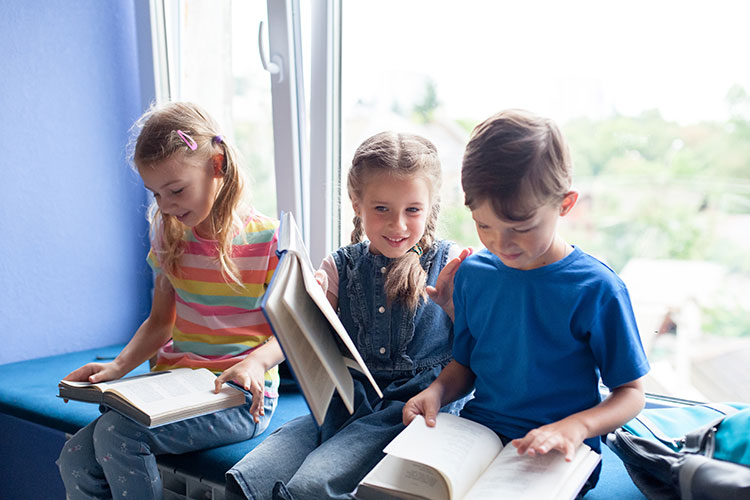
<p>For our children to experience success, the collaborative efforts of parents, communities, teachers, school leaders, and support networks in all our schools are required. In Aotearoa New Zealand, our educational partnerships begin with power-sharing conversations and close relationships with communities and whānau since they both know their children best and want the best for them.</p>
<p><a href="https://www.schoolnews.co.nz/latest-print-issue/" target="_blank"><strong>The latest print issue of School News magazine is available for free here.</strong></a></p>
<p>As a bi-cultural nation, responsiveness in our teaching needs to be underpinned by cultural and relational responsiveness as ways of working. Children draw on different experiences, language backgrounds and histories of engagement with different literacies. These include oral, written and visual texts. Each child has differing rates and types of progress, and they each learn different things from the same learning experience.</p>
<p>Some children find literacy learning more challenging than others, and different aspects of literacy challenge children in various ways. Children who find literacy learning difficult can be taught to read and write. The earlier they do so, the more they benefit from their literacy skills, processes, positive attitudes and knowledge. In many cases, early literacy difficulties create further difficulties for children. So, the key to preventing literacy difficulties is to notice early and wrap support around children so that they can progress to become confident readers and writers.</p>
<p><strong>Creating a school-wide coherent approach to literacy means drawing on all the literacy expertise in your school to offer more wraparound support.</strong></p>
<p>Instructional packages don’t just <em>work</em>. What works is the close match between where a child is at, and the teaching that they receive. To make this practical in classrooms, a comprehensive approach can be designed that considers what happens in class programmes, extra support in small group teaching and individual learning support. At each tier, the approach becomes increasingly tailored to children’s unique profiles, and additional teaching expertise is required to support that targeted teaching.</p>
<p>A tiered model requires a team approach to prevent literacy learning difficulties. At each Tier, the group size gets smaller, meaning teaching is increasingly targeted to children requiring additional support, and tailored to their learning profiles.</p>
<p>In this way, schools can systematically increase the literacy support by adding expertise, by bringing another expert teacher into the class to support the teaching of a small group. This approach adds another person to that existing relationship between the whānau, the teacher and the child. Formative use of assessments and conversations among professionals, whānau and students underpin teaching designed for specific children.</p>
<p><strong>Teacher collaboration, co-planning, and co-teaching build self-improving teams</strong></p>
<p>Success in literacy requires both teacher knowledge of the child and teacher expertise in literacy. Instead of seeking the right way to teach literacy, we seek the right way to teach the child. We look to make sure there is a close match between the child and the literacy teaching they receive. This is a question of close observation, noticing change, expectation of pace, how to design for children, how to teach in front of colleagues.</p>
<p>These are the skills that underpin teachers’ experience and expertise. That adaptive expertise can contribute to the targeting of the teaching to small groups in the classroom or to individual needs. By drawing on the skills of <a class="wpil_keyword_link" href="https://www.schoolnews.co.nz/2014/07/teachers-to-make-youth-employment-their-business/" title="teachers" data-wpil-keyword-link="linked" target="_blank">teachers</a> and the knowledge of whānau, lessons can be designed to be powerful, positive and inclusive, based on real children.</p>
<p><strong>Continuous improvement</strong></p>
<p>Whereas a traditional approach to literacy programmes requires that procedures are implemented as designed in routine ways, a responsive approach to literacy improvement means that teachers make adaptive decisions based on children.</p>
<p>Continuous measurement and improvement ensures that decisions are good ones that result in learning. Teachers collect regular evidence about their decisions and the learning that results. </p>
<p>That’s why regular analysis and review underpin the teacher’s craft. That’s also why teacher collaboration and a team approach support the decision making. Using expertise, making strong decisions, reviewing effectiveness: collectively these actions work to make sure that learning is equitable for all.</p>

EXCLUSIVE: Teachers used to be paid two to three times more than minimum wage workers,…
After an “overwhelming” vote to reject the latest Government offer, secondary school teachers will begin…
Second-language learning should be compulsory, says a new report from a forum bringing together academics,…
A new entitlement aimed to improve access to learning support coordinators for schools with students…
Educators have raised questions about the Ministry of Education’s new secondary school subjects, set to…
Professional learning and development (PLD) for teachers needs to be higher impact for teachers and…
This website uses cookies.